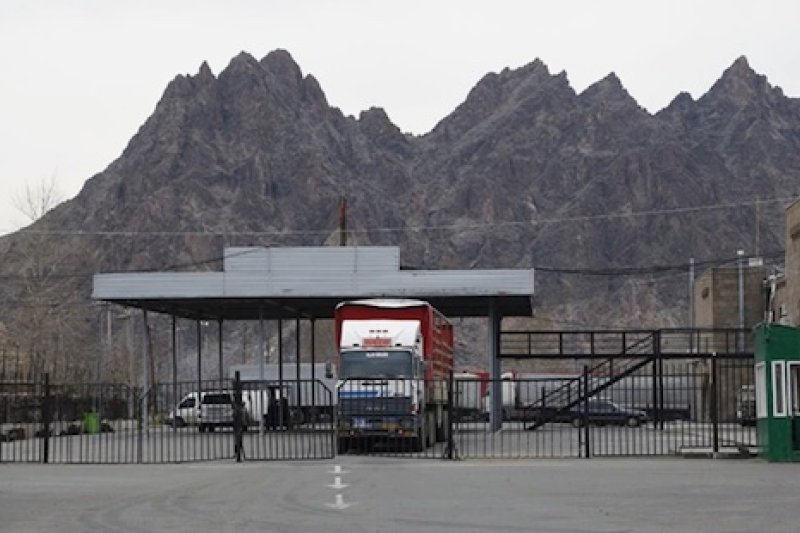Iran Warns Russia against Siding with Azerbaijan in Border Dispute
Iran’s new reformist government has warned Russia against siding with Azerbaijan in a border dispute as concerns in Tehran persist over its relations with Moscow.
The Iranian foreign minister, Sayeed Abbas Araghchi, took the unusual step of upbraiding Russia after Moscow sided with Azerbaijan over its calls for a land corridor along the Armenia-Iran border that Tehran fears could limit its access to Europe and the wider world.
“Regional peace, security and stability is not merely a preference, but a pillar of our national security. Any threat from north, south, east, or west to territorial integrity of our neighbours or redrawing of boundaries is totally unacceptable and a red line for Iran,” Araghchi said on X.
The row has wider geo-political implications if it indicates that the newly elected Iranian government is willing to take a tougher line with Moscow as part of its effort to rebalance its foreign policy.
Russia and Iran are due to sign a new strategic cooperation agreement, but the content is still open for debate, and tensions exist within the Iranian government over the diplomatic price of deepening its military alliance with Russia, which has seen Iranian-made drones used against cities in Ukraine.
Iran earlier this week also summoned the Russian ambassador, Alexey Dedov, to express its displeasure at Moscow’s stance, saying it did not want a conflict created on its borders with Moscow’s encouragement.
Araghchi’s remarks were a clear reference to Moscow’s decision to back a call by Azerbaijan for an east-west corridor to be opened through Armenia to the Nakhchivan exclave in western Armenia.
His rebuke was echoed elsewhere in Iran. Mohsen Rezaei, the former overall commander of the Islamic Revolutionary Guards Corps and the secretary of the Expediency Council, which resolves issues between parliament and the Guardian Council, said: “The behaviour of Russian statesman was not acceptable and in clear contradiction with their declaration of friendship with Iran, These ambiguities should be resolved.”
Ahmad Naderi, a hardliner inside the parliament, said: “The lack of appropriate response to the Russians in the cases of previous actions against Iran’s national interests has caused them to be doubly arrogant. They should be made to understand that strategic cooperation does not mean renouncing interests.
The Iranian regime has historically opposed Azerbaijani and Turkish efforts to establish the so-called Zangezur corridor between Azerbaijan proper and the Nakhchivan Autonomous Republic because such a corridor, going through Armenia’s most southern province, might sever Iranian access to Armenia and then Europe.
Azerbaijan has at various times threatened to establish the corridor by force if necessary, which would be likely to provoke a further war with Armenia.
Azerbaijan’s military defence budget is more than three times the size of Armenia’s, and Baku demonstrated its military superiority in September 2023 by recapturing the occupied territories in Nagorno-Karabakh within 24 hours.
The latest row was prompted by the Russian foreign minister, Sergei Lavrov, saying on a recent visit to Baku by Vladimir Putin that Moscow backed the corridor and that Armenia was sabotaging a Russian brokered agreement to open it.
A debate is under way in Tehran about the wisdom of retaining close contacts with Moscow. The tone of Araghchi’s “red line” tweet suggests he wants to show his call for a more balanced east-west policy – a key part of the new president, Masoud Pezeshkian’s, successful election campaign – has substance.
Heshmatollah Falahatpisheh, a former head of Iran’s national security and foreign policy commission, warned Moscow’s stance on the Zangezur corridor might be a pre-emptive attack by Putin to prevent the possibility of the formation of communication channels between the new government of Iran and the US.
An EU spokesperson made clear that relations between the EU and Iran were unlikely to improve if Iran continued to supply drones and other weaponry to Russia for use in Ukraine. The Iranian ambassador to the UN, Amir Saeed Iravani, took the unusual step of sending a letter to the UN secretary general, António Guterres, saying talk of such a trade was baseless. The EU spokesperson, Peter Stano, said: “If it becomes clear that Iran provides more military aid to support Russia’s illegal actions in Ukraine, the European Union will undoubtedly react.”
Stano said Josep Borrell, head of EU foreign affairs, had been in touch with the new Iranian government to raise the issue of Iran’s support for Russia in Ukraine, as well as to discuss Iran’s nuclear programme.
He added: “Iran’s military support for Russia’s illegal actions in Ukraine is one of the most important determining issues in our relations with Tehran. That’s why we reacted to this issue by imposing sanctions.”
(Source: The Guardian)













